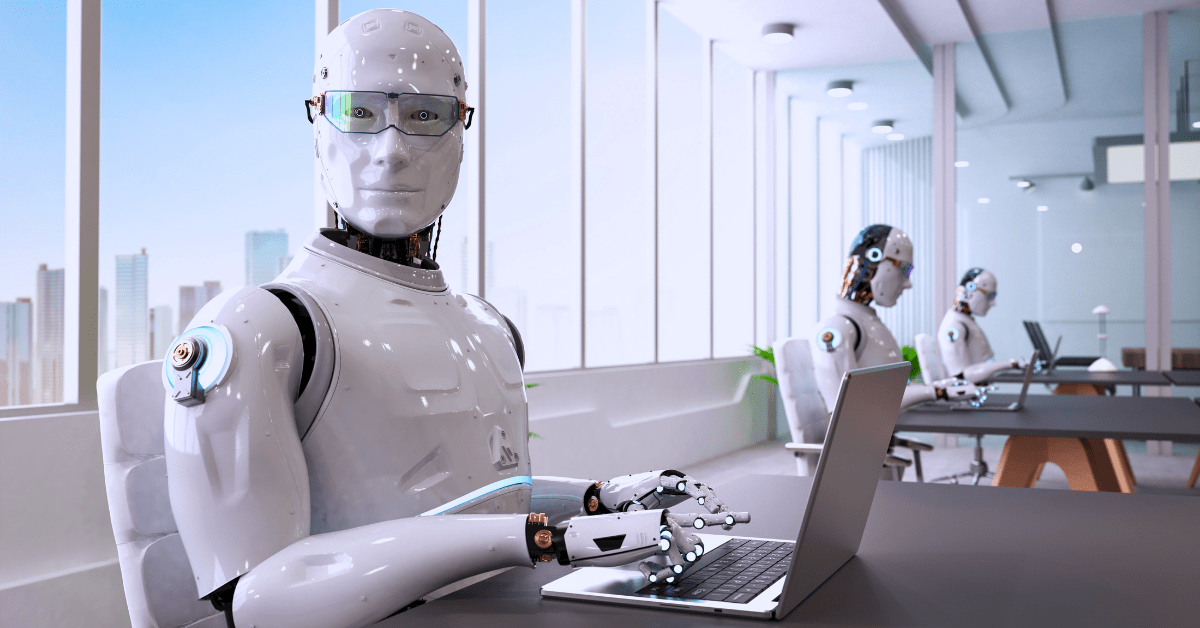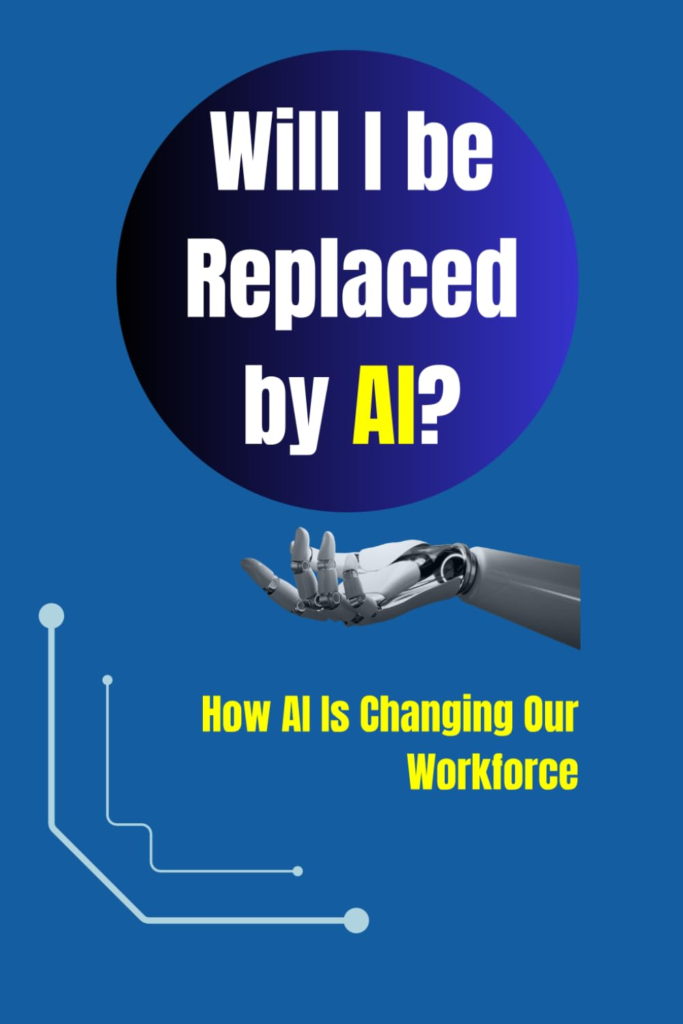The Rise of Artificial Intelligence in the Workplace
Artificial Intelligence (AI) has rapidly evolved and become a transformative force across numerous industries. Its emergence can be traced back several decades, with initial developments in the 1950s as researchers began to explore the capabilities of machines to perform tasks that would normally require human intelligence. Over the years, advancements in algorithms, data processing capabilities, and the proliferation of machine learning techniques have facilitated the advancement of AI, allowing it to transition from theoretical models to practical applications in the workplace.
Recent years have witnessed a substantial increase in the adoption of AI technologies by businesses striving to enhance operational efficiency and drive innovation. As automation technologies become more sophisticated, organizations are increasingly integrating AI-powered solutions to streamline processes, improve decision making, and reduce costs. Industries like healthcare, finance, manufacturing, and retail have experienced remarkable changes attributed to AI, showcasing its ability to handle large volumes of data with speed and accuracy.
Specific tasks that have been successfully automated include data entry, customer service inquiries, and inventory management, among others. For instance, AI chatbots have transformed customer interactions, providing instant responses to queries and allowing human agents to focus on more complex issues. In manufacturing, AI systems are optimizing production lines, ensuring that operations run smoothly with minimal human intervention. The healthcare sector, too, is seeing substantial benefits, with AI-driven diagnostic tools aiding in faster and more accurate diagnoses.
The implications of these changes are significant. Increased efficiency equates to higher productivity levels, enabling businesses to channel resources more effectively. Additionally, AI’s capabilities allow for more precise analysis and forecasting, leading to improved strategies and outcomes. As AI continues to reshape the workforce, it is crucial for organizations to adapt and embrace these innovations, ensuring they remain competitive in the evolving landscape of work.
(Purchase today by clicking on the image)
Redefining Job Roles and Skills
The advent of artificial intelligence (AI) is significantly transforming various job roles across numerous industries. As AI technologies take on routine and repetitive tasks, traditional roles are evolving to accommodate this shift. For instance, administrative tasks that once required substantial human intervention are now being automated, leading to enhanced efficiency within organizations. Consequently, job roles that center around data analysis, strategic decision-making, and human interaction are becoming essential, highlighting a growing demand for new skills.
In the wake of these changes, professionals must prioritize continuous learning and professional development. The dynamic nature of AI necessitates that workers become adept at leveraging these technologies while providing the human oversight and creativity that machines cannot replicate. Skills such as critical thinking, problem-solving, and emotional intelligence are increasingly valued as businesses seek to strike a balance between human capabilities and technological efficiency. Therefore, professionals across sectors must actively engage in upskilling and reskilling initiatives to stay relevant in the face of rapid advancements.
Moreover, specific skill sets are gaining prominence in this technology-driven workforce. Proficiency in data analytics and familiarity with AI tools are becoming crucial for many occupations, as organizations seek to harness data to inform their strategies. Creative skills, including innovation and design thinking, are also in high demand, as these attributes enhance the ability to develop and implement new solutions in an AI-enhanced environment. As such, the workforce is moving towards a model that values adaptability and interdisciplinary knowledge, equipping professionals to thrive amidst ongoing transformations.
Enhancing Collaboration between Humans and AI
The integration of artificial intelligence (AI) within the workplace is transforming the dynamics of collaboration. Rather than merely substituting human roles, AI is positioned as a formidable partner, amplifying human capabilities through the concept of Augmented Intelligence. This approach emphasizes the synergy between human intelligence and machine learning, fostering an environment where both can thrive collaboratively.
One prominent example of this partnership can be seen in data analysis. AI systems are adept at processing vast amounts of data efficiently, uncovering patterns and insights that may elude human analysts. By automating routine data processing tasks, these systems allow human workers to focus on higher-level strategic decision-making. For instance, in marketing, AI tools can analyze consumer behavior data, providing actionable insights that enable teams to craft targeted campaign strategies. Thus, this collaboration leads to improved outcomes that balance efficiency with creativity.
Moreover, in the realm of project management, AI-driven platforms can facilitate enhanced coordination among team members. These tools can help in scheduling, resource allocation, and progress tracking, ensuring that teams are aligned and can work towards common objectives. AI serves as a valuable resource that aids in managing complex projects, allowing human team members to utilize their analytical skills for critical problem-solving tasks rather than administrative functions.
However, the integration of AI also presents challenges, such as concerns regarding data privacy and the potential for over-reliance on technology. Organizations must therefore foster a culture that promotes effective collaboration by ensuring transparency in AI usage and maintaining a focus on human oversight. Training and reskilling employees to work alongside AI tools can further enhance this partnership, preparing the workforce for a future where human and AI collaboration is the norm. By creating a synergistic environment, organizations can harness the full potential of both human insights and artificial intelligence, thereby driving innovation and competitive advantage.
The Future Outlook: Preparing for an AI-Driven Workplace
As artificial intelligence continues to redefine the parameters of the workplace, both businesses and employees must adapt to the emerging landscape shaped by advanced technologies. One notable trend is the increasing prevalence of remote and hybrid work models. Organizations are realizing the flexibility and productivity gains that stem from allowing employees to work from various locations. AI technologies facilitate this transition by enabling seamless collaboration through virtual platforms, ensuring that teams remain connected regardless of physical proximity.
Moreover, the integration of AI-driven analytics into business operations is expected to become a cornerstone for strategic decision-making. Companies will increasingly depend on data insights generated by AI to make informed decisions pertaining to marketing, resource allocation, and customer engagement. This reliance on AI for analytics necessitates upskilling the workforce, as employees will need to understand how to interpret AI outputs effectively and apply them to their specific roles.
Another crucial aspect of the future workplace involves the ethical considerations surrounding the implementation of AI. Organizations must navigate the fine balance between leveraging AI technologies for efficiency and ensuring that these tools are employed ethically. This entails addressing concerns over data privacy, bias in algorithmic decision-making, and the potential implications of surveillance technologies. Establishing robust ethical guidelines and transparency in AI deployment will be vital in fostering trust among employees and customers alike.
To prepare for this inevitable transition, businesses should prioritize continuous learning and innovation. Encouraging a culture of adaptability among employees will enhance their ability to harness AI technologies effectively, while also promoting ethical standards in their usage. By embracing innovation, organizations can position themselves to thrive in the AI-driven workforce, ensuring improved work outcomes and sustained competitive advantage.
(Purchase today by clicking on the image)






